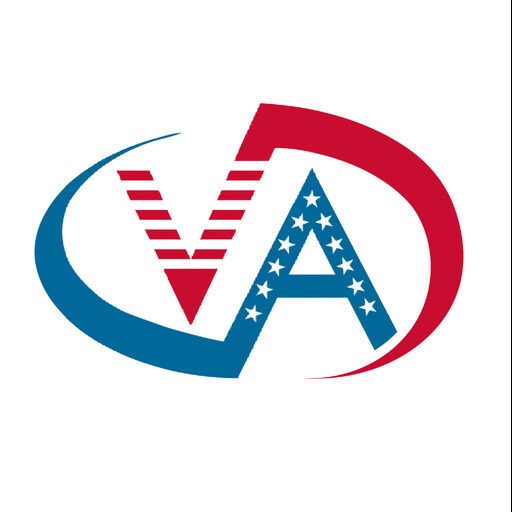Choosing the right type of mortgage is a crucial decision that can impact your financial future.
Two popular options are fixed-rate mortgages (FRMs) and adjustable-rate mortgages (ARMs).
Each has its benefits and drawbacks, and the right choice depends on your individual financial circumstances, goals, and risk tolerance.
We’ll explore these two mortgage types to help you decide which is best for you.
Understanding Fixed-Rate Mortgages (FRMs)
What is a Fixed-Rate Mortgage?
A fixed-rate mortgage keeps the same interest rate throughout the entire term of the loan, typically 15, 20, or 30 years. This stability makes it easier to budget, as your mortgage payments remain unchanged.
Advantages of Fixed-Rate Mortgages:
- Predictability: Your monthly payments are predictable and unaffected by market fluctuations, which is excellent for long-term budgeting.
- Simplicity: FRMs are straightforward and easy to understand, making them a popular choice for first-time homebuyers.
- Security: They provide a sense of security in a rising interest rate environment.
Drawbacks:
- Higher Initial Rates: FRMs often start with higher interest rates compared to the initial rates of ARMs.
- Less Flexibility: If interest rates fall, you're locked into your rate unless you refinance, which involves additional costs.
Understanding Adjustable-Rate Mortgages (ARMs)
What is an Adjustable-Rate Mortgage?
Unlike FRMs, ARMs start with a lower rate that adjusts periodically based on changes in a corresponding financial index plus a fixed margin. Common adjustments occur annually after an initial fixed period of 3, 5, 7, or 10 years.
Advantages of Adjustable-Rate Mortgages:
- Lower Initial Payments: ARMs usually offer a lower initial rate, which means lower monthly payments early on.
- Potential for Rate Drops: If interest rates fall, so might your mortgage payments without the need to refinance.
Drawbacks:
- Rate and Payment Increases: Your rates and monthly payments can increase significantly over time, depending on financial market trends.
- Complexity and Risk: ARMs are more complex and involve more risk, which might not be suitable for all homebuyers.
Comparing ARM vs. FRM for VA Loans
Veterans Affairs (VA) loans offer unique advantages with both adjustable-rate mortgages (ARMs) and fixed-rate mortgages (FRMs), tailored to support Veterans in their homeownership journey. Each option serves different financial strategies and personal circumstances.
VA Loan Options: ARM vs. FRM
- VA FRM Benefits:
- Stability: The fixed interest rate means predictable monthly payments throughout the life of the loan, ideal for Veterans who plan on making their new house a long-term home.
- Simplicity: With no changes in interest rates, budgeting becomes straightforward, eliminating any surprises from fluctuating market rates.
- VA ARM Benefits:
- Lower Initial Rates: ARMs typically start with lower rates compared to FRMs, which means lower initial monthly payments. This can be beneficial for Veterans who anticipate a rise in income or plan to move again within a few years.
- Caps on Adjustments: VA ARMs include annual adjustment caps as well as a lifetime cap, which protects borrowers from drastic increases in interest rates.
VA Loan Payment Comparison
| Mortgage Type | Initial Rate | Initial Monthly Payment | Rate After 5 Years | Monthly Payment After 5 Years |
|---|---|---|---|---|
| VA FRM | 4.0% | $954 | 4.0% | $954 |
| VA 5/1 ARM | 3.5% | $898 | 5.0% | $1,074 |
Decision Factors for Veterans:
- Career Stability: Veterans with stable, long-term employment might lean towards an FRM for its consistency and lack of risk.
- Future Relocation: For Veterans who foresee relocation due to future deployments or changes in station, an ARM could provide financial benefits during the initial period when the rate is lower.
- Financial Planning: Veterans should consider their current and expected financial situation. If there is a likelihood of improved financial circumstances in the future, they might be able to handle potential rate increases of an ARM.
Considering these points, Veterans should evaluate their personal and financial long-term goals, discuss with a financial advisor, and choose the type of VA loan that best fits their needs and lifestyle. The protective measures inherent in VA loans, like rate caps, make both ARM and FRM viable and safe options for Veterans aiming for homeownership.
Comparing FRMs and ARMs: Which Mortgage Type Should You Choose?
Choosing between a fixed-rate mortgage (FRM) and an adjustable-rate mortgage (ARM) depends on several personal factors such as your financial situation, housing tenure plans, and comfort with potential payment changes. Here's a concise guide to assist in your decision:
- Choose an FRM if:
- Long-Term Residency: Ideal if you plan to stay in your home for many years, providing payment stability regardless of rate changes.
- Preference for Stability: Suited for those who value predictable monthly payments for easier long-term budgeting.
- Interest Rate Concerns: Best if you want to avoid the risk of increasing rates, especially in a rising rate environment.
- Choose an ARM if:
- Short-Term Ownership: Beneficial if you plan to move or refinance before the rate adjusts, enjoying lower initial payments.
- Capacity for Future Payment Increases: Feasible if you expect your income to grow or can accommodate higher future payments.
- Lower Initial Payments: Advantageous for those looking to minimize upfront housing costs, potentially reallocating savings to other investments.
Real-Life Scenarios: Which Mortgage Fits Best?
When choosing between fixed-rate mortgages (FRMs) and adjustable-rate mortgages (ARMs), considering real-life scenarios can help illustrate the impact of each type on your finances over time. Below is a detailed comparison:
Monthly Payment Comparison
| Mortgage Type | Initial Rate | Initial Monthly Payment | Rate After 5 Years | Monthly Payment After 5 Years |
|---|---|---|---|---|
| FRM | 4.0% | $954 | 4.0% | $954 |
| 5/1 ARM | 3.5% | $898 | 5.0% | $1,074 |
Considerations for Different Homebuyers:
- First-Time Homebuyers:
- Typically favor FRMs due to their predictability and stability, which simplifies budgeting and financial planning.
- The assurance of fixed payments helps manage household expenses without worrying about potential increases.
- Seasoned Investors:
- Often opt for ARMs to capitalize on lower initial rates, maximizing cash flow which can be redirected into other investments.
- May benefit from significant savings during the initial rate period and are usually more capable of handling potential rate increases due to higher risk tolerance and financial reserves.
- Upgrading Homebuyers:
- Individuals planning to upgrade to a more expensive home might choose ARMs for lower initial payments, making the transition more financially manageable.
- This strategy is particularly effective if the buyer plans a short-term stay and expects to sell before the rate adjusts.
- Downsizing Retirees:
- Those looking to downsize might prefer the security of an FRM, avoiding the unpredictability of ARM resets during their retirement years.
- Fixed payments ensure that housing costs remain constant, aiding in the management of a fixed retirement income.
The Bottom Line
Frequently Asked Questions
What is better for a first-time homebuyer, FRM or ARM?
For first-time homebuyers, an FRM might be safer due to its predictability and simplicity. This ensures your monthly payments are fixed, helping with long-term budgeting.
Can I switch from an ARM to an FRM?
Yes, you can refinance from an ARM to an FRM to lock in a fixed rate, but this process will involve closing costs and potentially higher rates.
What happens if interest rates go down after I choose an FRM?
If rates go down after you lock in an FRM, your rate remains the same unless you decide to refinance to a lower rate, which includes additional costs.
How do ARMs adjust?
ARMs adjust based on an index rate, such as the LIBOR or the Treasury Index, plus a set margin. The total adjustment is capped to prevent extreme changes.
Is it risky to choose an ARM? Yes, ARMs carry more risk than FRMs because your payments can increase significantly over time. If you're not prepared, this could strain your finances.
What should I consider if I plan to move in a few years? If you plan to move before the fixed-rate period of an ARM ends, you could save money on interest with an ARM compared to an FRM.
How can I predict my future payments on an ARM? While you can't predict exact amounts due to variable future rates, you can estimate payments using current indexes and historical trends.

The VA Loan Network Editorial Team is comprised of dedicated mortgage specialists and financial writers committed to providing veterans and service members with accurate, up-to-date information on VA loan benefits, eligibility, and the home-buying process.








